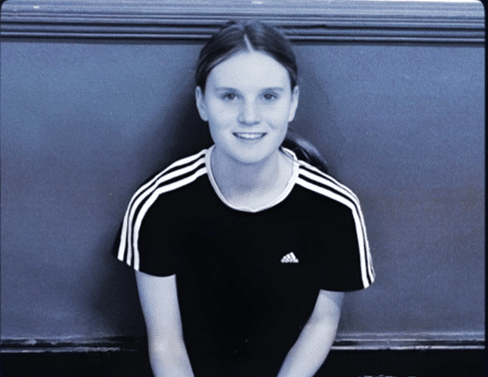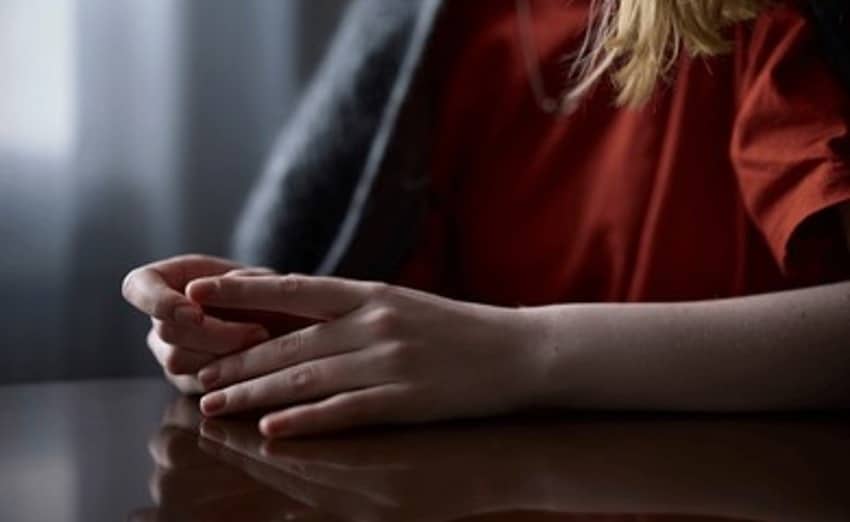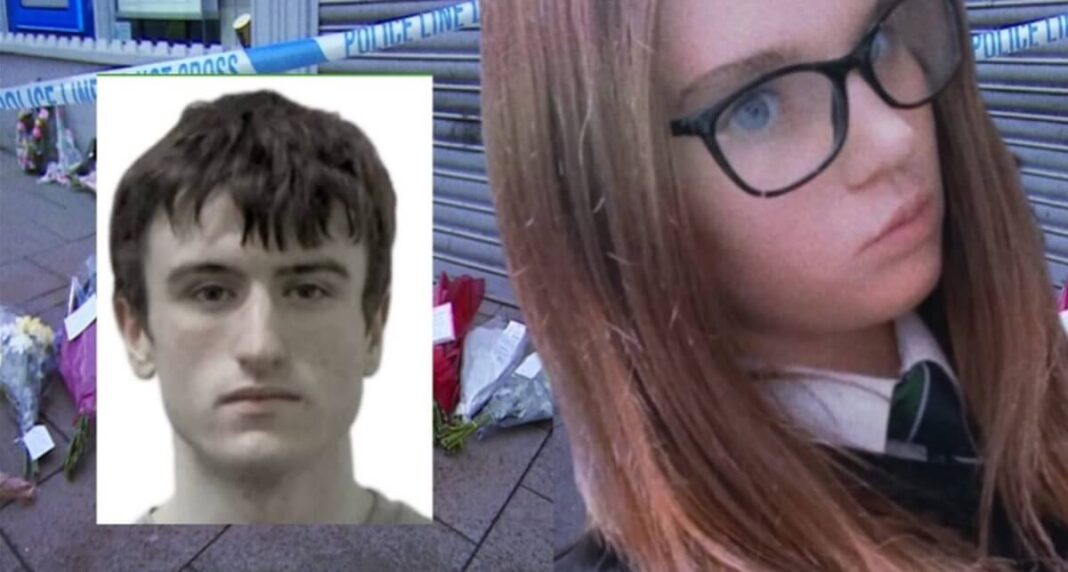Holly Newton radiated warmth. The 15-year-old from Haltwhistle, Northumberland lived life with enthusiasm, excelling in sports and finding joy in dance. Her mother, Micala Trussler, described her as a “beautiful child who grew into a funny and happy teenager who would do anything for anyone.”
At school, Holly was known as a quiet, conscientious student. She maintained a close circle of friends and never received a bad report. Her passion for family defined her, creating a stable foundation that made her kind and empathetic toward others.

Logan MacPhail, then 16, attended a support needs school in Gateshead. He struggled with speech difficulties and reading, living with autism, and learning challenges. These obstacles affected his confidence and ability to form relationships with peers.
Their paths crossed at army cadets when Holly was around 13. The structured environment of cadet training provided common ground, and a friendship blossomed. Holly, demonstrating her nurturing nature, helped MacPhail with his speech and reading difficulties, even getting books from the library to assist him.
The Initial Relationship
Their relationship lasted 18 months. In the beginning, it seemed typical for their age – MacPhail visited Holly’s home regularly, appearing polite and mild-mannered to her family. Holly’s mother noted nothing unusual about their early interactions.
This was Holly’s first and only relationship. For MacPhail, the connection held particular significance. His speech impediment had made forming friendships difficult, making his relationship with Holly especially important to him.
A shift occurred several months before Holly’s death. The relationship’s dynamics changed as MacPhail’s behavior became increasingly controlling. He demanded constant updates on Holly’s whereabouts. He restricted her social activities, limiting her time with friends.
In a significant red flag, MacPhail gained access to Holly’s social media accounts and changed her passwords, exerting control over her online presence and communications.

Breaking Free
By early January 2023, Holly wanted to end the relationship. Her mother observed her growing unhappiness but noted Holly’s struggle with the breakup, partly due to her compassionate nature. “Because she was so young, she didn’t know how to get out of it,” Micala Trussler explained. “With Holly, she quite often felt sorry for people, which is why she kept going back and forward.“
Holly’s family supported her decision to end the relationship. Her mother advised that stopping all contact would be kindest. However, MacPhail’s response to the breakup revealed the depth of his obsession. According to Holly’s mother’s testimony, MacPhail had told her daughter that ‘if he couldn’t have her, then nobody could‘ – words that would prove tragically prophetic.
The relationship’s end triggered an escalation in MacPhail’s behavior. He began making unannounced visits, sending numerous messages, and seeking information about Holly through her friends and family. His inability to accept the breakup transformed into a pattern of stalking that would ultimately lead to tragic consequences.
This background provides crucial context for understanding the events that followed. It highlights how a seemingly normal teenage relationship deteriorated into a pattern of control and obsession, raising important questions about recognizing warning signs in young relationships and protecting vulnerable teenagers.

A Pattern of Escalation
On January 26, 2023, MacPhail took a bus journey to Holly’s hometown of Haltwhistle, arriving around 8:21 PM. Despite knowing Holly wasn’t home and didn’t want him there, he remained in the area of her house for hours in the cold night air.
Throughout the evening, MacPhail messaged Holly’s brother and friends, claiming he wanted to retrieve his PlayStation. The judge later dismissed this as a mere excuse to gauge whether Holly was seeing someone else. In a concerning development, MacPhail even asked Holly’s sibling to leave a window open for him.
MacPhail’s own mother, worried about his absence, reported him missing to the police. Officers located him near Holly’s house at approximately 1:00 AM and took him home.
On January 27, 2023, at 8:00 AM, Holly sent messages to a friend expressing her fears:
“Logan is gonna meet me outside of school… So he’s basically stalking me at this point… He’s gonna follow me until I talk to him.” – Holly Newton
Holly’s mother contacted the police about her concerns. They agreed Holly shouldn’t leave school if MacPhail appeared. Holly pleaded with her mother to let her see friends after school, and the planned police meeting was postponed to the evening.
MacPhail left his school in Gateshead early at lunchtime, claiming fatigue. He caught an initial bus early in the afternoon, arriving in Hexham around 3:00 PM. In his school backpack, he carried a kitchen knife.
Stalking
For approximately 45 minutes, MacPhail followed Holly and her friends through Hexham town center. He concealed his identity with a face mask and baseball cap, ducking out of sight when he thought he might be spotted. During this time, he made numerous calls to Holly, which she didn’t answer.
MacPhail deliberately misled others about his location, telling Holly’s friends and brother he was in Newcastle.
Around 5:00 PM, Holly and a friend stopped outside a pizza shop near a bus stop. MacPhail waited until Holly was briefly alone, then approached her. He convinced her to speak with him in a nearby alleyway.
What followed was what Judge Hilliard at Newcastle Crown Court would later describe in his sentencing remarks as a ‘vicious and brutal’ attack lasting about a minute. MacPhail inflicted 36 injuries on Holly, including 12 stab wounds and 19 other sharp-force injuries. There were 5 defense injuries to her hands where she had desperately tried to defend herself. When a teenage boy, known only as CD intervened after hearing Holly’s screams, MacPhail stabbed him four times.
Even after CD managed to pull MacPhail away from Holly, MacPhail returned to continue the attack. The force used was so severe that the knife broke and the blade bent – something the pathologist noted was “incredibly rare.”
After immediate intervention from emergency services and the efforts of several courageous bystanders, Holly was taken to Newcastle’s Royal Victoria Infirmary. Her blood loss however proved too great, and she died in the emergency room. She was just 15 years old.
CD suffered serious injuries. He survived the attack.
When arrested at the scene, MacPhail told officers:
“She’s been horrible to me. The knife was actually to kill myself. I was meant to kill myself but it went too far.” – Logan MacPhail
When officers charged MacPhail with Holly’s murder, he showed no emotion, asking only ‘Is she dead?‘
The Trial
MacPhail’s journey through the justice system began with questions about his capacity to stand trial. His defense team raised concerns about his autism and low IQ, leading to several medical assessments and causing significant delays.
After multiple hearings and expert evaluations, medical professionals determined MacPhail could understand and participate in legal proceedings if appropriate adjustments were made. The Crown Prosecution Service’s psychiatric assessments confirmed he possessed the capacity to form the required intent for the murder charge.
During the six-week trial at Newcastle Crown Court in July and August 2024, MacPhail admitted manslaughter and possession of a knife but denied murder and grievous bodily harm with intent. He claimed he had “blacked out” during the attack and insisted he brought the knife intending only to harm himself.
The prosecution, led by David Brooke KC, demonstrated that MacPhail was “deeply unhappy” about the relationship ending and “jealous” of Holly spending time with others. They established a pattern of calculated behavior, from his covert journey to Hexham to his deliberate surveillance of Holly.
On August 29, 2024, the jury found MacPhail guilty of both murder and wounding with intent.
MacPhail’s Sentencing: Justice for Holly
On November 1, 2024, Mr. Justice Hilliard delivered detailed sentencing remarks. He addressed several key aspects of the case:
Mental Health Considerations:
The judge acknowledged MacPhail’s autism spectrum disorder and low IQ but determined these factors “really had no material part to play in what happened.” He noted MacPhail functioned satisfactorily in daily life and could understand the consequences of his actions.
Premeditation:
While the judge couldn’t be certain MacPhail planned the murder before arriving in Hexham, he concluded MacPhail decided to attack Holly “very soon after” realizing at the bus stop that she wouldn’t resume their relationship.
Aggravating Factors:
– The vicious nature of the attack
– Its resumption after the initial intervention
– Holly’s age and vulnerability
– The severe injuries she sustained while defending herself
– The serious wounding of CD who tried to help
MacPhail received a life sentence with a minimum term of 17 years, less the 641 days already spent in custody. For wounding CD, he received a concurrent 5-year detention sentence.
During the sentencing, Holly’s mum gave her victim impact statement on the devastation of losing her daughter.
“On Friday, January 27 2023, our lives changed forever. I kissed my four kids goodbye on their way to school and one of them never came home. The last time I saw my daughter was at home that morning, I never saw her with her eyes open again, I never heard any last words.
I do not agree that only those over the age of 16 can be victims of domestic abuse, and I will use Holly’s experience to petition for change. Holly’s case has been labelled as ‘knife crime’ but making sure that people know the truth about her case is one of my goals. I firmly believe that teenagers should be taught about healthy relationships in schools and domestic abuse services offered at a younger age, maybe then Holly would have recognised the red flags earlier and had access to other services that could have helped her. I don’t want Holly to become another statistic, there is so much media coverage of how many women are killed each year by men, it almost normalises it for young men like Logan. Things have got to change.
It was more than just one life lost that night because our hearts also stopped. Holly is missed beyond words can ever describe but will never be forgotten.” – Holly Newton’s mum Micala Trussler
Holly’s Legacy: Campaign for Change
Holly’s death sparked crucial conversations about protecting young people from relationship abuse. Current UK law doesn’t recognize domestic abuse victims under 16, meaning Holly’s murder couldn’t be officially classified as domestic violence.
Holly’s mother, Micala Trussler, has launched a campaign to change this legislation. The family began campaigning for change through two main initiatives:
– Providing emergency bleed control kits in public areas
– Developing educational programs about domestic abuse for teenagers and adults
Through these efforts, Holly’s family works to prevent similar tragedies and ensure her death leads to meaningful change in how society protects young people in relationships.
Holly Newton’s death exposed a critical flaw in the Domestic Abuse Act 2021, which excludes under-16s from its definition, categorizing abuse involving younger teens as child abuse. This approach overlooks the distinct challenges of teenage relationship abuse, where power dynamics and emotional manipulation often mirror patterns seen in adult cases. Her story has prompted calls for reform, urging policymakers to address this gap and ensure that all young people, regardless of age, have the legal protections they deserve.
In response to Holly’s case, Home Secretary Yvette Cooper announced a government review of domestic abuse laws, signaling a willingness to reexamine how teenagers are protected. The review highlights the growing recognition of violence in teenage relationships as a serious issue requiring tailored interventions. Holly’s family continues to advocate for meaningful changes to safeguard others, ensuring her legacy drives progress in protecting vulnerable young people from harm.


